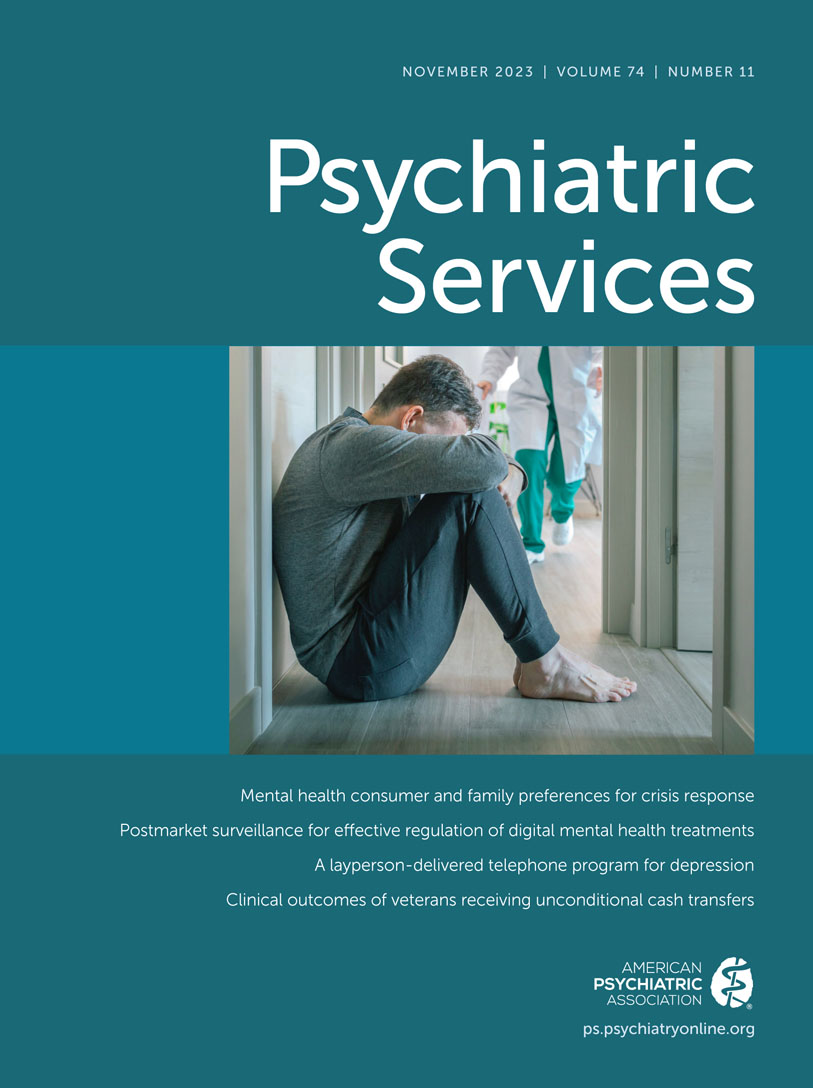Medicaid Costs and Utilization of Collaborative Versus Colocation Care for Patients With Depression
Abstract
Objective:
The authors examined cost and utilization metrics for racially diverse Medicaid primary care patients with depression receiving care through either a collaborative care model (CoCM) of integration or the standard colocation model.
Methods:
Data from a retrospective cohort of Medicaid patients screening positive for clinically significant depression during January 2016–December 2017 were analyzed to assess health care costs and selected utilization measures. Seven primary care clinics providing CoCM were compared with 16 clinics providing colocated behavioral health care. Data for the first year and second year after a patient received an initial Patient Health Questionnaire–9 score ≥10 were analyzed.
Results:
In the first year, compared with patients receiving colocated care (N=3,061), CoCM patients (N=4,315) had significantly lower odds of emergency department (ED) visits (OR=0.95) and medical specialty office visits (OR=0.92), with slightly higher odds of primary care provider (PCP) visits (OR=1.03) and behavioral health office visits (OR=1.03). In year 2, CoCM patients (N=2,623) had significantly lower odds of inpatient medical admissions (OR=0.87), ED visits (OR=0.84), medical specialty office visits (OR=0.89), and PCP visits (OR=0.94) than the colocated care patients (N=1,838). The two groups did not significantly differ in total cost in both years.
Conclusions:
Access to CoCM treatment in primary care for racially diverse Medicaid patients with depression was associated with more positive health care utilization outcomes than for those accessing colocated treatment. As organizations continue to seek opportunities to integrate behavioral health care into primary care, consideration of health care costs and utilization may be helpful in the selection and implementation of integration models.
Access content
To read the fulltext, please use one of the options below to sign in or purchase access.- Personal login
- Institutional Login
- Sign in via OpenAthens
- Register for access
-
Please login/register if you wish to pair your device and check access availability.
Not a subscriber?
PsychiatryOnline subscription options offer access to the DSM-5 library, books, journals, CME, and patient resources. This all-in-one virtual library provides psychiatrists and mental health professionals with key resources for diagnosis, treatment, research, and professional development.
Need more help? PsychiatryOnline Customer Service may be reached by emailing [email protected] or by calling 800-368-5777 (in the U.S.) or 703-907-7322 (outside the U.S.).



